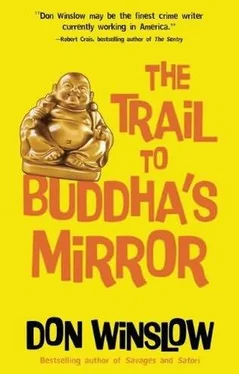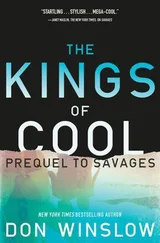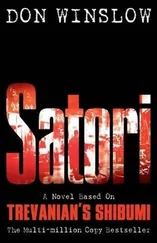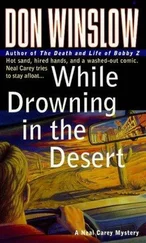Don Winslow - The Trail to Buddha_s Mirror
Здесь есть возможность читать онлайн «Don Winslow - The Trail to Buddha_s Mirror» весь текст электронной книги совершенно бесплатно (целиком полную версию без сокращений). В некоторых случаях можно слушать аудио, скачать через торрент в формате fb2 и присутствует краткое содержание. Жанр: Триллер, на английском языке. Описание произведения, (предисловие) а так же отзывы посетителей доступны на портале библиотеки ЛибКат.
- Название:The Trail to Buddha_s Mirror
- Автор:
- Жанр:
- Год:неизвестен
- ISBN:нет данных
- Рейтинг книги:3 / 5. Голосов: 1
-
Избранное:Добавить в избранное
- Отзывы:
-
Ваша оценка:
- 60
- 1
- 2
- 3
- 4
- 5
The Trail to Buddha_s Mirror: краткое содержание, описание и аннотация
Предлагаем к чтению аннотацию, описание, краткое содержание или предисловие (зависит от того, что написал сам автор книги «The Trail to Buddha_s Mirror»). Если вы не нашли необходимую информацию о книге — напишите в комментариях, мы постараемся отыскать её.
The Trail to Buddha_s Mirror — читать онлайн бесплатно полную книгу (весь текст) целиком
Ниже представлен текст книги, разбитый по страницам. Система сохранения места последней прочитанной страницы, позволяет с удобством читать онлайн бесплатно книгу «The Trail to Buddha_s Mirror», без необходимости каждый раз заново искать на чём Вы остановились. Поставьте закладку, и сможете в любой момент перейти на страницу, на которой закончили чтение.
Интервал:
Закладка:
15
Chengdu is the New Orleans of China.
In the States, you go to New York if you want to work. But if you want to play, you go to New Orleans. In China, you go to Beijing if you want to get something done. But if you want to do nothing, you go to Chengdu.
The people of Chengdu have the easy bonhomie common to southerners worldwide, and, like the denizens of New Orleans, they consider their city not so much a municipality within a country as a land of its own. There is considerable justification for this sentiment in Chengdu, which was the capital of the ancient land of Shu some four hundred years before the unification of China. The state of Shu rose again after the fall of the Tang Dynasty, leaving Chengdu and the whole province of Sichuan with an attitude of autonomy considerably frustrating to its would-be rulers in Beijing.
Chengdu has always attracted poets, painters, and artisans. Maybe it’s the warm weather or the sunshine. Maybe it’s the lush bamboo, or the hibiscus, or the surrounding countryside of fertile rice paddies and wheatfields. Maybe it’s the broad boulevards or the black-tiled houses with the carved wood balconies, or the wide sidewalks or the promenades that flank the river called the Silk Brocade. Maybe it’s all those things combined with a spirit of independence, but Chengdu loves its artists with a ferocious pride.
And its food. Like New Orleans, people go there to eat, and the natives are always eager to take you places that serve the “real thing.” In Chengdu that means outdoor stands that dish up hot noodles, a crowded restaurant that serves bean curd in forty-two different sauces, or a place on the outskirts that makes a hot chicken with peanuts that has inspired poets.
And tea. Before the Cultural Revolution pronounced them decadent, tea pavilions dotted the city. Often in the open air, or under bamboo leave roofs, the teahouses were neighborhood places where the locals gathered to consume vast quantities of green tea, play some mah-jongg, and carry on the exuberant conversations for which Chengdu was famous. They were places where poets sat in corners to write, and where artists sketched and painted. Here in the tea pavilions the natives escaped the summer’s afternoon rains and listened to the great storytellers hold forth for hours with much-loved tales from the golden past, stories about flying dragons, or runaway princesses, or the flight of the emperor Tang Hsuan Tsung into the vast wilderness of the western Sichuan mountains.
Of course, Chengdu changed with the revolution, and many of the city’s older neighborhoods were sacrificed to the new god of industrialization. A new generation of artists arrived, but their sketches became not paintings but blueprints, and their poetry could only be found in the dull symmetry of utilitarian factories and exhibition halls. The population swelled to a million workers, with three million more laboring in the surrounding industrial suburbs. The city that had once been famous for its silk became renowned for its metals, and the silky softness of the Chengdu spirit was muted with factory soot.
The new regime collectivized the surrounding countryside, replacing the efficient, highly productive estates and small family farms with huge, unwieldy communes. For the first time within memory or legend, the province knew hunger. During the Great Leap Forward the city itself avoided mass famine, but, ironically, the roads to the countryside were clogged with starving refugees from the Rice Bowl districts outside the city. Mao himself visited in 1957 to discuss his economic strategy with local agricultural experts. He told them to meet their quotas.
After a brief respite of normality, the Cultural Revolution erupted, first in Beijing, then in Shanghai, and then in Guangzhou, as Mao sought to destroy his government and replace it with the “permanent revolution.” It seemed to happen overnight in Chengdu; its urbane, insouciant people awoke one morning to find the “big character posters” in the schools, then in the streets, and then in government hallways. A Chengdu unit of the Red Guard formed, tore down the ancient city walls as atavistic reminders of feudalism, destroyed the decadent exhibitions of paintings, vandalized the park dedicated to the great poet Du Fu, and then closed the teahouses. The city’s trademark smile became a rictus of paranoia as friend betrayed friend, son betrayed father, daughter betrayed mother, and the community betrayed itself. In the darker corners of the narrower streets the mutterings of secession started as the Red Guard splintered into competing factions. The city smoldered.
The fire exploded in 1967, when the rival groups of Red Guards waged pitched battles for possession of factories, post offices, and train stations. Machine-gun fire flashed across the Silk Brocade River, tanks rumbled down the boulevards, gasoline bombs tumbled from the carved balconies. The older people stayed inside and left the city to its youth, who fought each other in a frenzy of violence to determine who loved Chairman Mao the most. The city burned.
Even Mao had seen enough, and he ordered his young worshipers to cease fighting and respect authority. They had a hard time squaring this request with “permanent revolution” and decided that Mao was being coerced by treasonous bureaucrats, so they took the revolution up a couple of notches and attacked police stations and government buildings. Mao sent the army, and the People’s Liberation Army rolled into Chengdu to put down the insurgency. The Red Guard resisted. Thousands were killed. Many of the survivors were sent to prison, or sentenced to labor camps, or packed off into the countryside to learn firsthand about the life of the masses. The city put on the ashes of mourning.
Years of sullen silence followed. Artists stopped painting, poets produced no verse, the great storytellers were either wise enough to tell no stories or told them to themselves inside their cells. The once-unbuttoned city buttoned itself up tightly and waited for this long afternoon rain to end.
Neal Carey heard a lot about Chengdu’s history from Xiao Wu. Xiao Wu talked nonstop for three straight days as he took Neal around to every sight of any possible significance in the greater Chengdu area. It was marathon tourism, an endurance event. Neal wondered if Wu was just that proud of his hometown, or whether it was William Frazier that was on display and not the city. Maybe Wu was just drunk with the power of having a car, a driver, and the chance to practice his English.
Not that Neal minded all that much. Cooped up as he had been for three months, it felt great to be out in the warm sun, and if the sultry summer air wasn’t exactly invigorating, it wasn’t exactly painful either. And it felt wonderful to walk. At first his leg muscles sent him messages in the form of pins and needles, and he needed to rest a lot. But after the first morning he found that he and Xiao Wu were taking longer jaunts away from the government car, and that his legs seemed to be waking up from their long sleep.
And they did cover some ground, because Wu seemed unwilling for his guest to miss a single temple, shrine, park, panda, or rare bamboo plant in the city.
Some of it was great, like on that first wonderful morning. He had sprung out of bed like a kid at Christmas, bolted breakfast down, and was dressed and ready half an hour before Wu knocked on the door. Wu was excited also. This was his first important assignment, he explained, and he also confessed that it would be only the second time he had ever ridden in a private automobile. He hurried Neal through the hotel lobby and into the waiting car. The driver was a middle-aged man in a green Mao jacket, and he went to such great lengths not to appear to be listening that Neal made him for a fink right off the bat.
Читать дальшеИнтервал:
Закладка:
Похожие книги на «The Trail to Buddha_s Mirror»
Представляем Вашему вниманию похожие книги на «The Trail to Buddha_s Mirror» списком для выбора. Мы отобрали схожую по названию и смыслу литературу в надежде предоставить читателям больше вариантов отыскать новые, интересные, ещё непрочитанные произведения.
Обсуждение, отзывы о книге «The Trail to Buddha_s Mirror» и просто собственные мнения читателей. Оставьте ваши комментарии, напишите, что Вы думаете о произведении, его смысле или главных героях. Укажите что конкретно понравилось, а что нет, и почему Вы так считаете.












